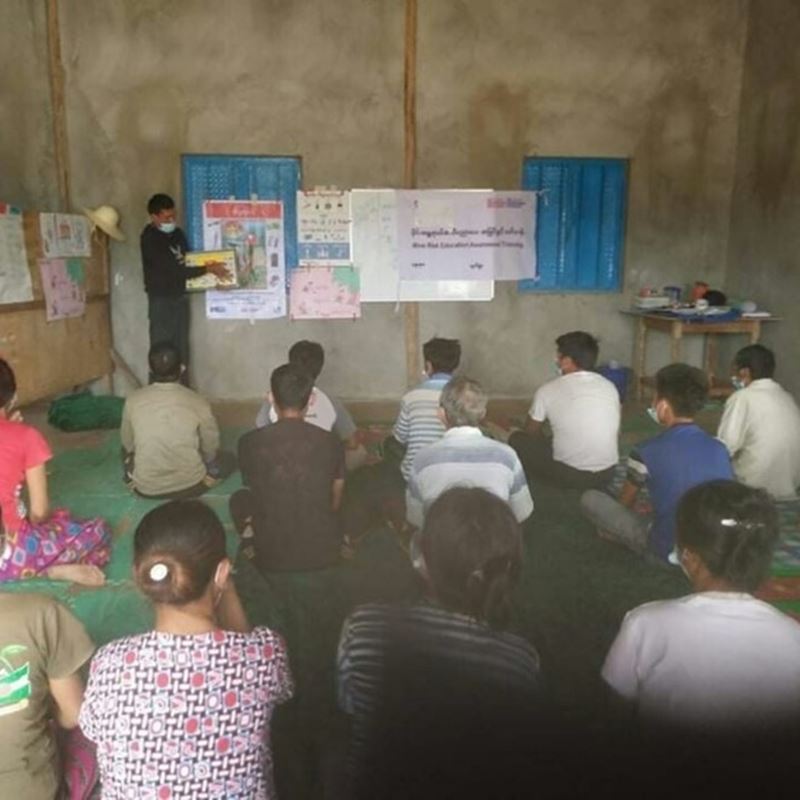In December 2020 a villager walking along the Lawt Naw Village tract in Northern Shan State in Myanmar came across an unexploded ordnance (UXO) item near his village. Out of curiosity he picked up the item to examine it further. Unfortunately the UXO was still active and exploded in his hands when he picked it up. The villager lost his life on the spot. People standing around him, watching, were injured and needed medical attention.
This is not an isolated incident in Myanmar, as mines and UXOs have been used and laid in the ground for years – including today in 2022 as active conflict continues in many parts of the country. In 2021, 284 people were casualties of mines/explosive remnants of war (ERW) which were reported and recorded. The actual number could be higher, as many incidences occur in rural areas where there is limited access and health services are few and far between.
The continued threat of UXOs in Myanmar is profound, as 71% of rural communities are dependent on agricultural land as their primary means of income generation and survival. UXOs however are a threat to people accessing and cultivating the land. They are also a threat to people accessing other socio-economic assets safely, such as water points, schools and hospitals. Everyday parents need to make difficult choices – do I risk farming this land? Do I risk sending my child along this path to school to get an education? Or do we not take this risk, but then face hunger and no learning. These choices are hard and have perpetuated the poverty cycle millions of people are trapped in.
DRC is working in Myanmar to help break one component of this cycle through Explosive Ordnance Risk Education (EORE) sessions. After the incident in Lawt Naw Village, DRC teams contacted community members to discuss starting up EORE sessions in the village, as well as surrounding villages. From experience, it is most effective for community members to be part of delivery the sessions – as they have the best access to the area, connection with community members and speak the local dialect. It takes a certain person to take up this task though. The activeness and enthusiasm shown by U Sai made him the perfect person to join the project.
"I am very glad when I am chosen as a Community Focal Point for our village. I was thinking of doing social works which I’m very much interested to. I’m very proud to work with DRC. When I heard that DRC will give an incentive, I was thinking that it’s a win-win situation; by working for a living, I’m also making some good at the same time. I don’t feel like I’m doing my job because I’m paid for, I’m doing it because I’m responsible for it. Besides, there is mine/ERW risk in our surroundings. There was an ERW incident occurred in our village in the past. I would like to take that incident as a lesson learnt and I don’t want that kind of incident to happen in our village again in the future. I’m proud that I can echo what I’ve learnt by conducting Risk Education for our people to adopt safe behaviour."
DRC provided training to U Sai on EORE and how to be a good Community Focal Point for roll out of the sessions. U Sai actively organized community members to attend online EORE sessions (as physical access has been constrained due to COVID-19 and conflict movement restrictions). After participating in a few sessions himself, he was ready and capable to spread EORE messaging further in his and surrounding villages.

